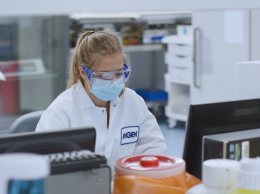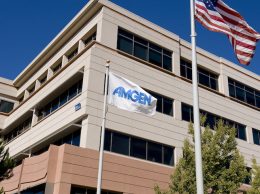Amgen submitted an application to the Food and Drug Administration for approval of its biosimilar drug ABP 501 on Nov. 25.
ABP 501 is designed as a lower-cost version of Humira, which is approved to treat nine conditions including arthritis, skin disorders and colon inflammation. Humira, made by Chicago-based AbbVie, typically costs $20,000 per year for treatments. Amgen is one of at least six companies developing biosimilar drugs similar to Humira because its main patent expires late next year.
ABP 501 is part of a class of drugs called biosimilars. Biosimilars are like generics but they aren’t identical to the complex compounds they replicate and are made with living organisms. Biopharmaceutical companies are terrified by biosimilars because they threaten the multi-billion dollar sales of drugs made by Amgen, AbbVie and New Jersey-based Johnson and Johnson.
In a news release, Amgen, the Thousand Oaks-based biotech giant, said Phase 3 clinical studies showed ABP 501 worked about as well and was about as safe as Humira.
“Patients with chronic inflammatory conditions are faced with a significant burden of disease requiring long-term treatment,” said Sean Harper, executive vice president of research and development at Amgen. “Amgen’s branded biologic medicines and biosimilars are developed and manufactured according to the same high standards.”
Amgen clearly has a love hate relationship with biosimilars. ABP 501 is Amgen’s first biosimilar application to the FDA. While biosimilar drugs give Amgen the chance to go after its competition, they also give the competition the opportunity to take on Amgen.
In March, the FDA approved Zaxario, a drug made by rival Novartis, which is similar to Amgen’s Neupogen but is 15 percent cheaper than Neupogen.
Amgen sued Novartis to block Zaxario’s debut on the U.S. market until an appeals court said Novartis could sell the drug on Sept. 2.
• Contact Philip Joens at pjoens@pacbiztimes.com.






 Print
Print Email
Email

















